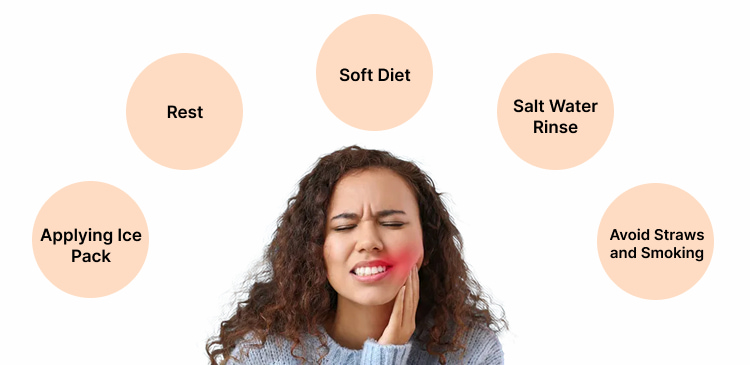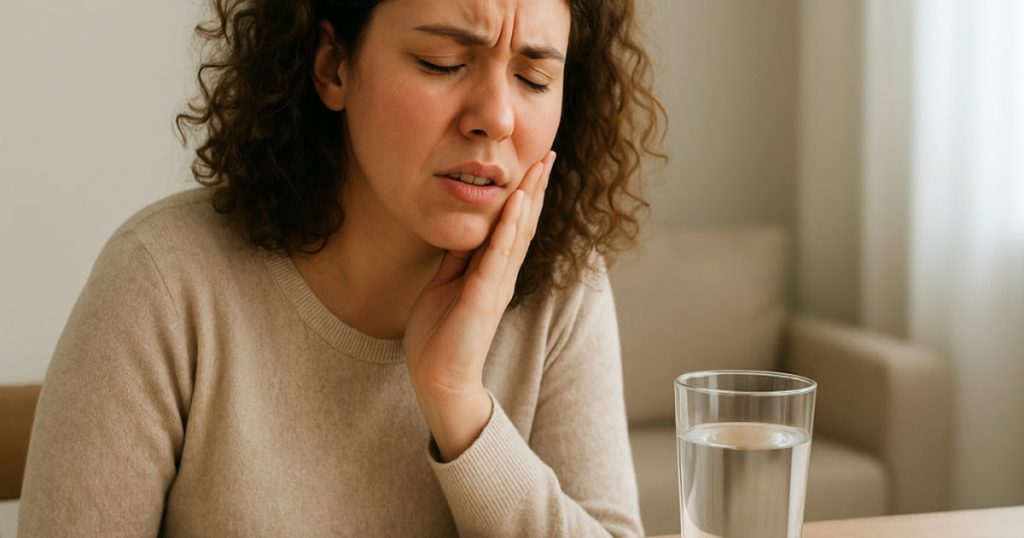Getting a tooth pulled can be a relief if it’s been causing problems, but it comes with a question: how much will it hurt afterward? Believe it or not, tooth extraction pain is a normal part of the healing process, but the intensity and duration can be different in each person. The good news is that with the right care after a tooth extraction, most people find the discomfort temporary and manageable.
In this guide, we’ll walk you through what causes the pain, how long it usually lasts, simple ways to manage it at home, and when it’s important to call your dentist.
What Causes Pain After Tooth Extraction?
Tooth extraction is a common dental procedure that leaves behind a wound in your mouth. The pain you feel afterward mostly comes from your body’s natural healing response. Once a tooth is removed, the surrounding gum tissue and bone need time to recover. Inflammation, swelling, and the formation of a blood clot in the socket are all part of this process.

In most cases, this pain is normal and a sign that your body is repairing itself. However, severe or persistent pain may signal complications, like a dry socket.
But other factors can also contribute to discomfort:
| Tissue trauma | The gums and bone are disturbed during extraction. |
| Nerve sensitivity | Exposed nerves in the socket area can be tender. |
| Swelling and inflammation | Your body’s defense mechanism can cause temporary soreness. |
Read more: Sometimes a dead tooth makes extraction necessary. Curious about what a dead tooth is and how long it can stay in your mouth? Check out our full guide.
Don’t Let Tooth Extraction Pain Hold You Back
At Pape Dental Centre, we’re here to make every step of your treatment from consultation to recovery as comfortable and stress-free as possible.
Schedule an appointment with us today and let our caring team help you heal more easily.
Typical Duration of Tooth Extraction Pain
For most people, tooth extraction pain lasts only a few days, with the first 24 to 48 hours being the most uncomfortable since swelling peaks during this time. By day three to five, the discomfort usually decreases, although the type of extraction makes a difference. A simple extraction, such as removing a visible tooth, tends to heal faster with minimal pain after the first few days. In contrast, surgical extractions like wisdom teeth removal may take longer, sometimes causing soreness for up to a week or more. While complete healing of the extraction site can take several weeks, you should not feel significant pain throughout that period. If the discomfort worsens instead of improving, it’s important to contact your dentist.
How to Manage and Relieve Pain After Extraction
Managing pain after a tooth extraction is all about supporting your body’s healing process and preventing complications. Dentists usually recommend a mix of medications and simple at-home care. The good news is that with the right steps, most people can keep discomfort under control and return to normal activities quickly.
Over-the-Counter Pain Relievers
Medications like ibuprofen or acetaminophen are commonly recommended after extractions. These over-the-counter options are often the first line of dental medication for managing discomfort. Ibuprofen not only reduces pain but also helps with inflammation. Your dentist may suggest alternating between the two for better relief. Always follow the recommended instructions and ask your dentist before combining medications.

Home Remedies and Care Tips
Besides medication, there are a few simple at-home steps that can speed up healing and reduce pain:
Ice packs: Apply to the outside of your cheek for 15 to 20 minutes at a time during the first 24 hours to reduce swelling.
Rest: Give your body time to heal and avoid intense activities right after surgery.
Soft diet: As advised by Mayo Clinic, eat soft foods for the first 24 hours. Foods like soup, yogurt, mashed potatoes, or smoothies prevent irritating the site. Also, avoid spicy or hard foods.
Sult water rinse: After the first 24 hours, gently rinse with a warm saltwater solution a few times a day. This helps keep the area clean without disturbing the clot.
Avoid straws and smoking: Suction and smoke can dislodge the blood clot. This leads to an increased risk of dry socket, one of the most painful complications.

Read more: Good oral hygiene is key to preventing infection after tooth extraction, and it’s also an important everyday habit. For learning daily oral care habits, explore the guide.
When to See a Dentist About Tooth Extraction Pain
As mentioned earlier, some discomfort is normal after an extraction. However, you should contact your dentist if you experience severe pain that doesn’t improve after 3 to 5 days or gets worse instead of better, notice an empty-looking socket or exposed bone (a sign of dry socket), have bleeding that doesn’t stop with gentle pressure, or develop fever, swelling, or a foul odor that may signal infection.
You will receive stronger pain medication or antibiotics if needed. Just don’t ignore worsening pain because early attention can prevent bigger complications.
Conclusion
Tooth extraction pain is a common part of the healing process, but it shouldn’t leave you worried. Most people experience the most discomfort in the first couple of days. By taking the right steps, from using OTC pain relievers to following your dentist’s aftercare instructions, you can keep pain under control. If pain lasts longer than expected or gets worse, contact your dentist.
At Pape Dental Centre, we offer much more than tooth extraction. Our services cover all your dental needs, from cosmetic treatments like dental veneers and teeth whitening to preventive care like periodontal examinations, all designed to keep your smile healthy and bright.
FAQ
-
Does throbbing mean healing from a tooth extraction?
Your body increases blood flow to the area in the first couple of days, so mild throbbing or soreness is a normal part of healing. If the throbbing becomes severe, lasts beyond a few days, or is paired with foul odor or bad taste, it may indicate a complication such as dry socket.
-
Should I still have throbbing pain 5 days after tooth extraction?
Most people feel significant improvement after 3 to 5 days. Some mild discomfort can linger, but strong or worsening throbbing pain after 5 days is not typical and should be checked by your dentist.
-
When does tooth extraction pain stop?
For simple extractions, pain usually improves within 2 to 3 days and goes away almost completely within a week. On the other hand, surgical extractions, like impacted wisdom teeth, may cause soreness for up to 7 to 10 days.
Have you experienced tooth extraction pain before? Share tips that worked best for you in the comments.





